From seed selection to pesticide application, farmers work...
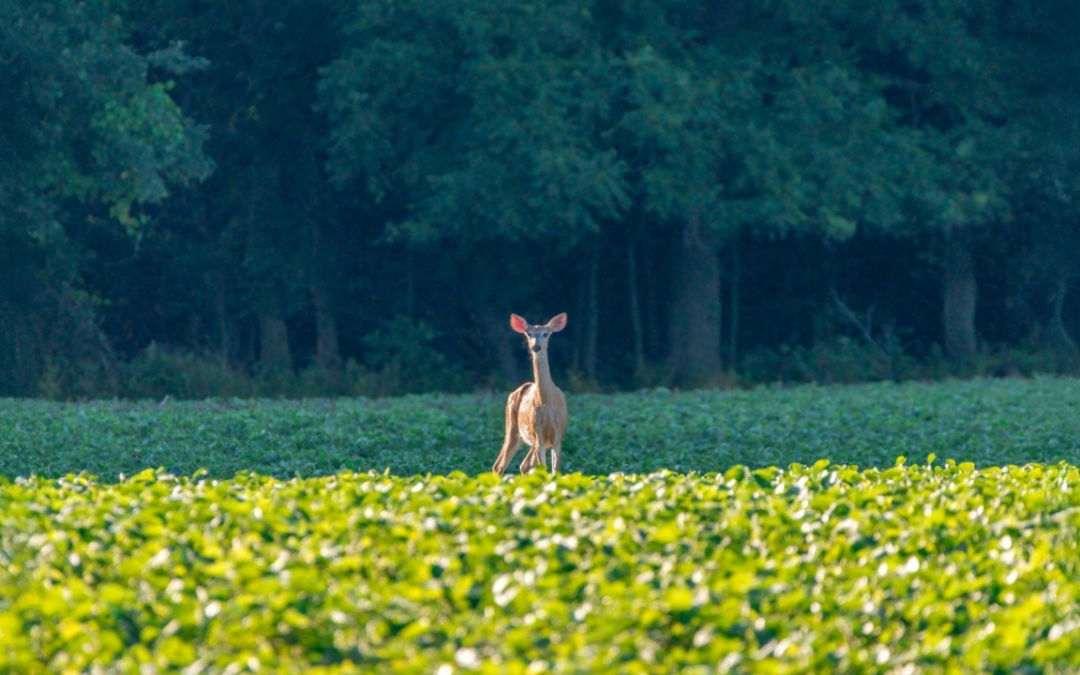

From seed selection to pesticide application, farmers work...
Auburn University Professor Charles Chen was recently recognized for outstanding contributions to his field of peanut breeding and genetics. At the 57th annual meeting of the American Peanut Research & Education Society (APRES) July 15-17 in Richmond, Virginia,...
Auburn University’s Biosystems Engineering faculty and students garnered high honors and awards recognition through a prestigious international organization. Earlier this month, the American Society of Agricultural and Biological Engineers (ASABE) and their...
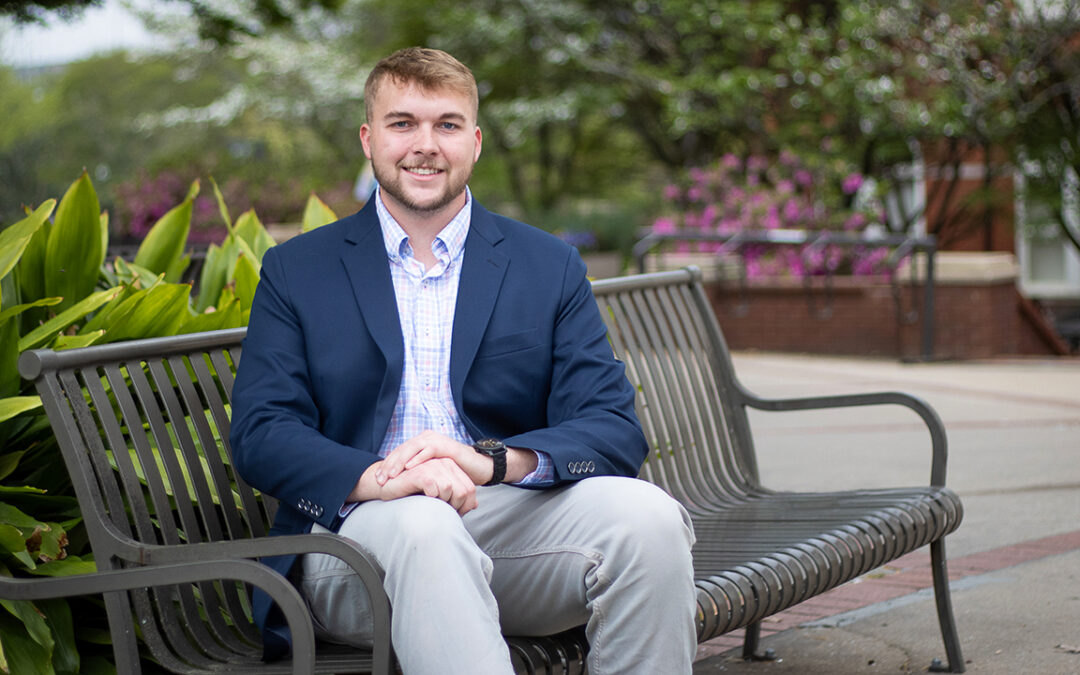
Advises future ag students to get involved The spring 2025 graduation marshal for the Auburn University College of Agriculture is a familiar face around Comer Hall....

Sudhanshu Kumar, a Ph.D. student in the Hydroclimate Research Group within the Department of Crop, Soil & Environmental Sciences, has been selected for the 2025...
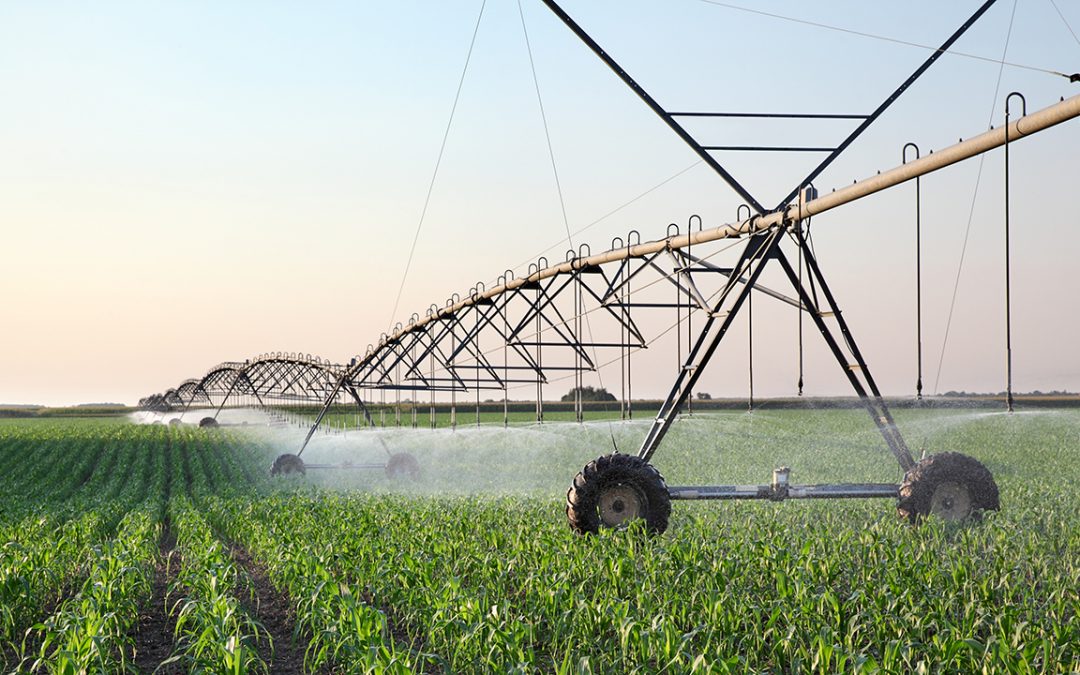
New model to help farmers make better investment decisions By Danielle Lunny Alabama farmers considering investing in irrigation equipment will soon have a free,...
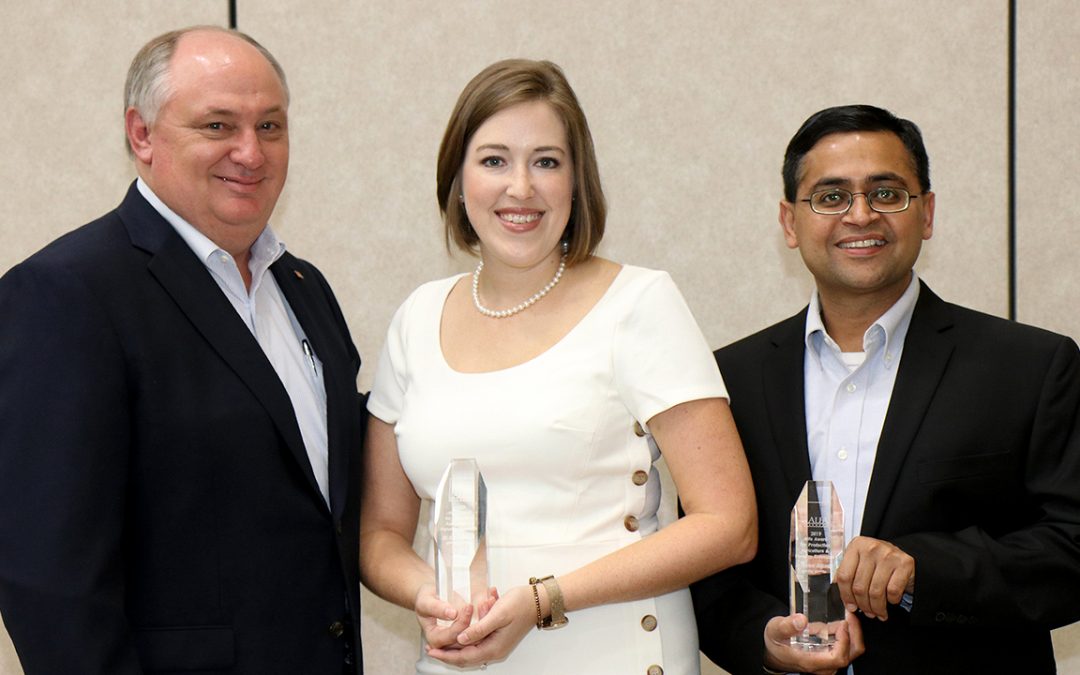
Auburn extension specialists Kim Mullenix & Ayanava Majumdar were honored for their work at the Alabama Farmers Federation Aug. 1.
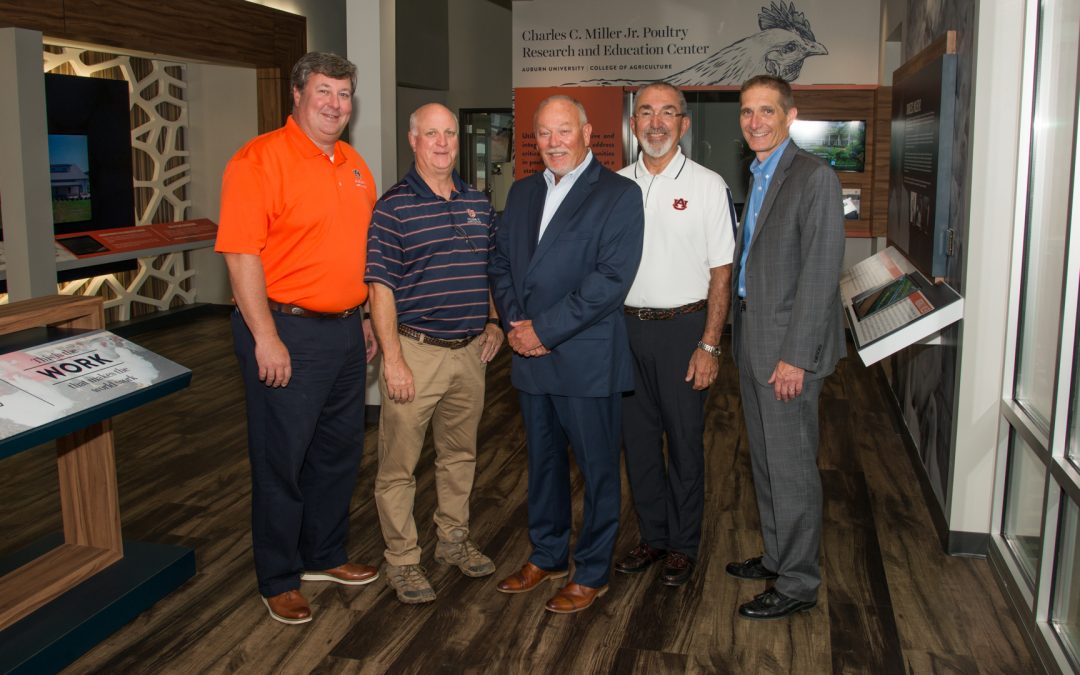
Marel Poultry donates a processing system to Auburn University’s Miller Center in Alabama, USA. Essential to poultry processing research.
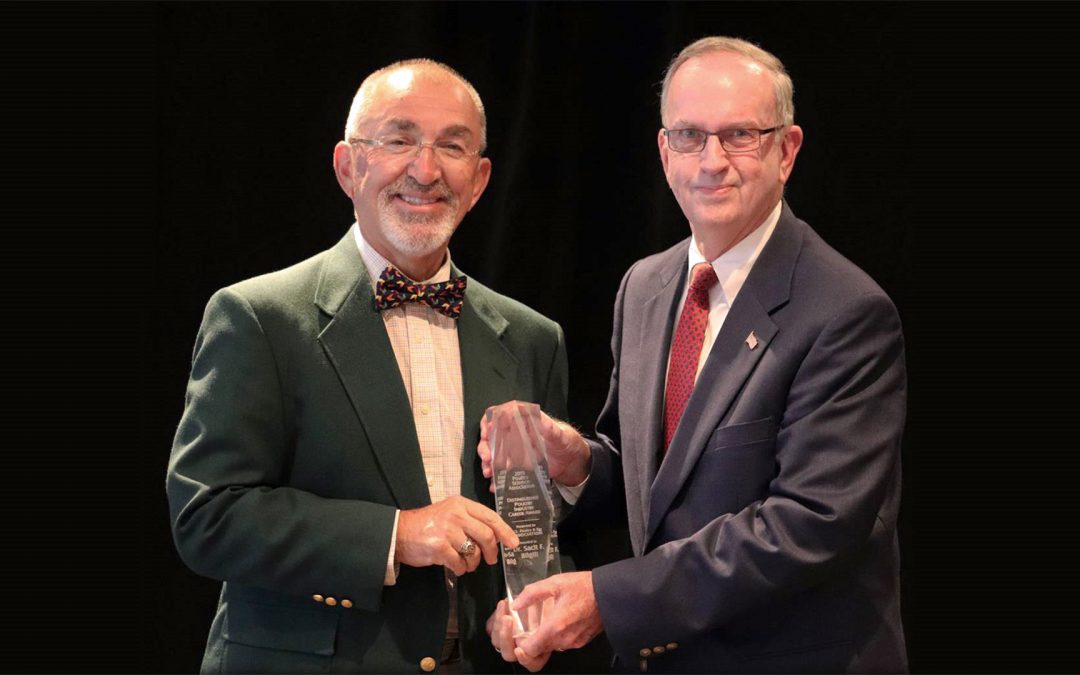
Auburn poultry scientist Sarge Bilgili accepts 2019 Poultry Science Association Distinguished Poultry Industry Career Award
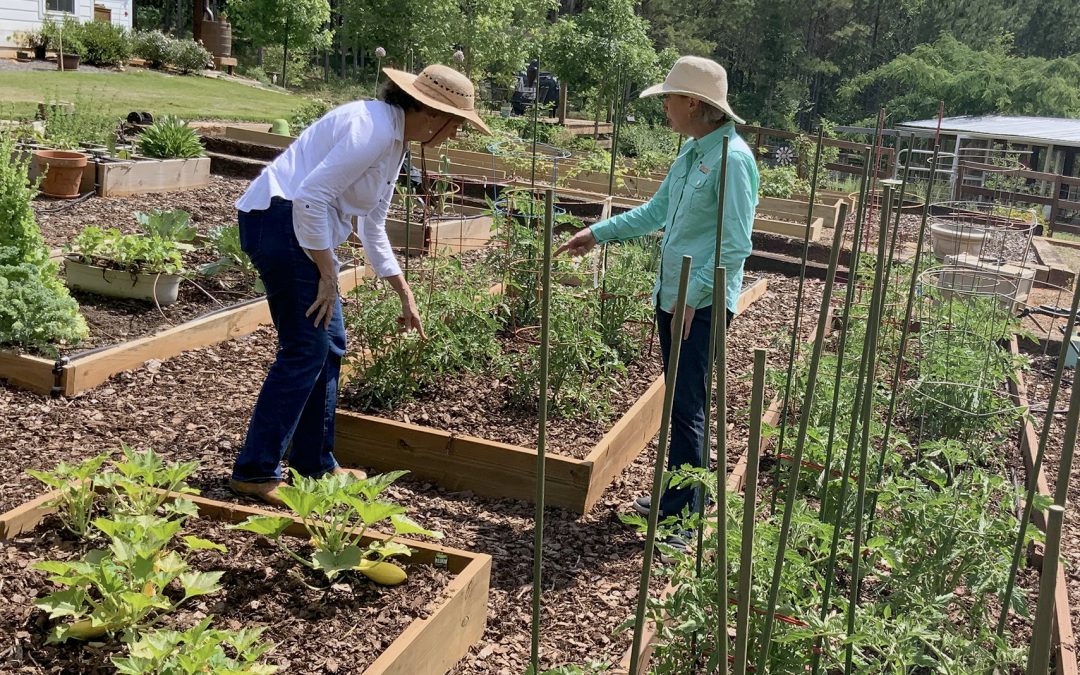
Horticultural experts at Auburn University are part of an innovative health study that uses gardening as a cancer intervention.
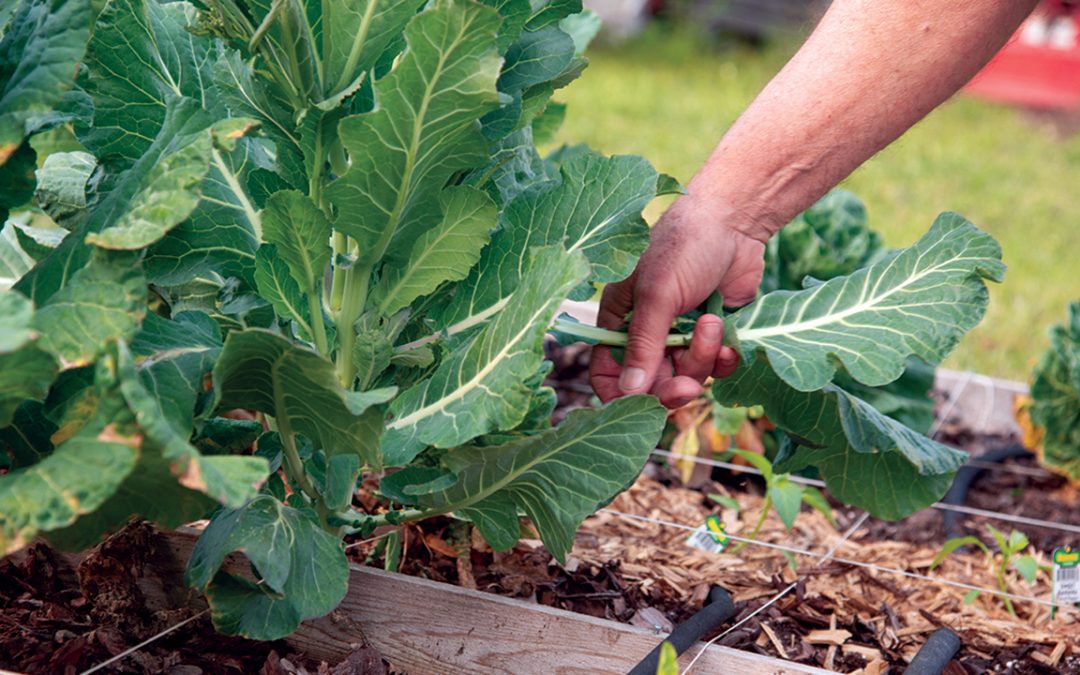
The tools for fighting cancer: how gardening has become a wellness practice
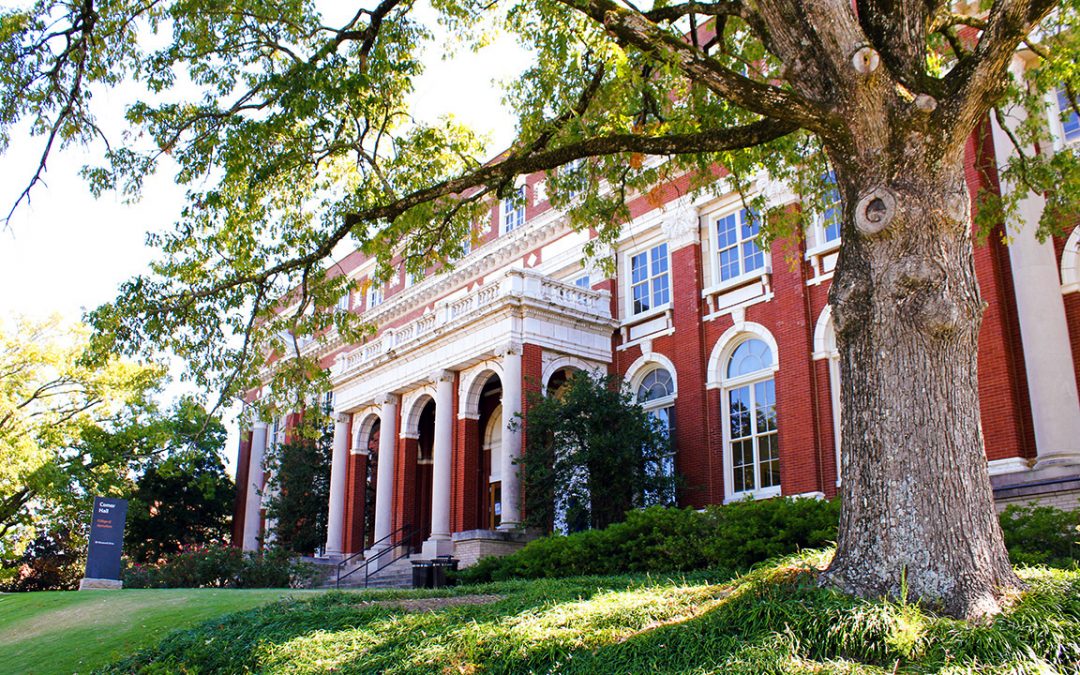
Biosystems engineering represented well at ASABE international meeting
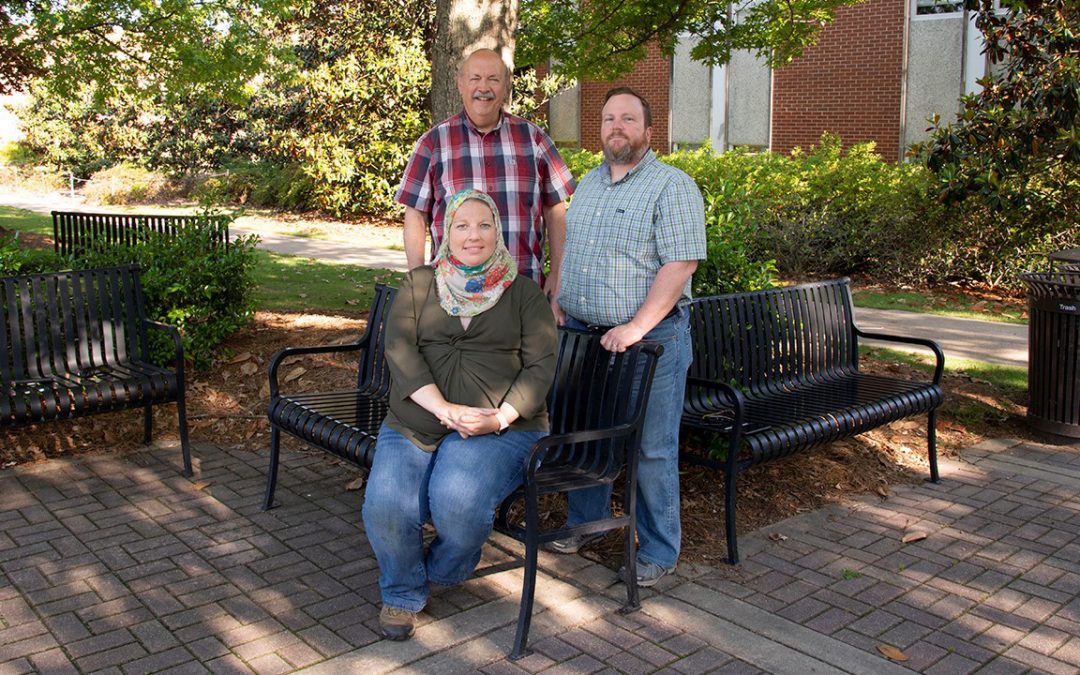
Auburn University researchers are examining the use of beneficial bacteria as an alternative to nitrogen on bermuda grass hay.
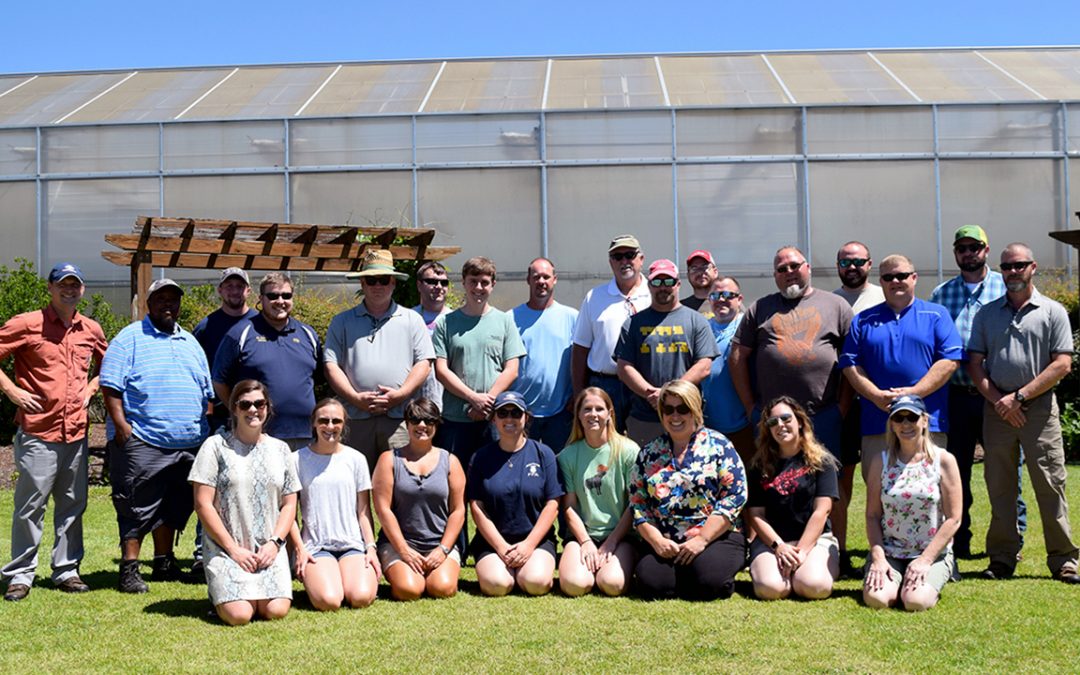
Horticulture department hosts workshop for Alabama agriscience teachers at Auburn
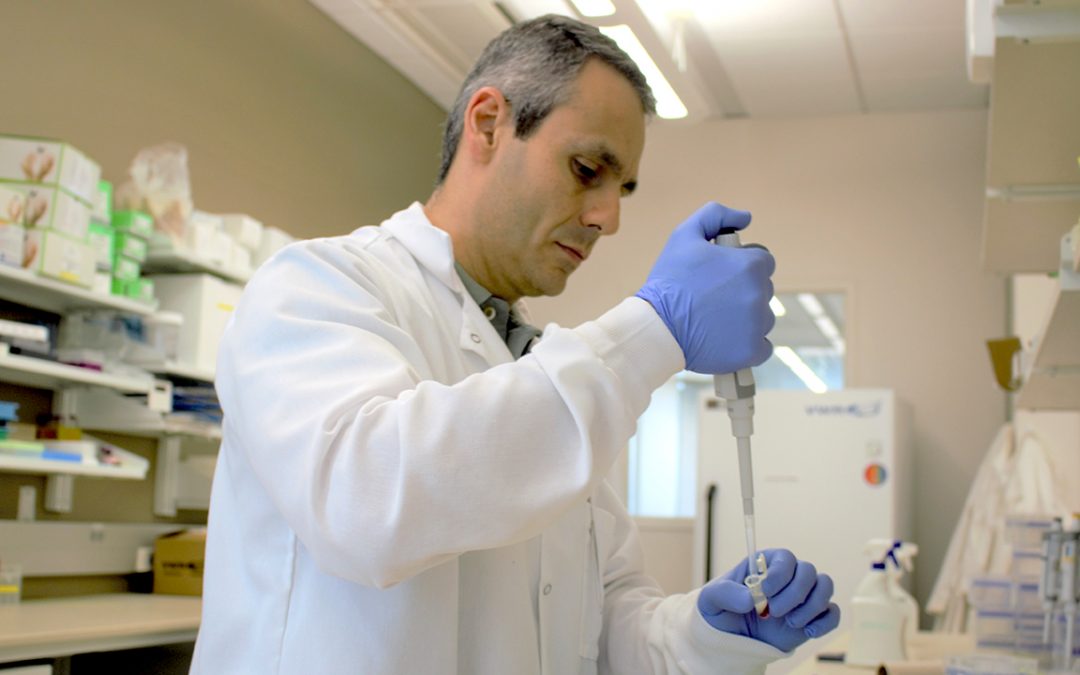
Fernando Biase, assistant professor in the College of Agriculture’s Department of Animal Sciences, is leading a project that will create a basis of knowledge allowing for the development of strategies to improve fertility in beef cattle.
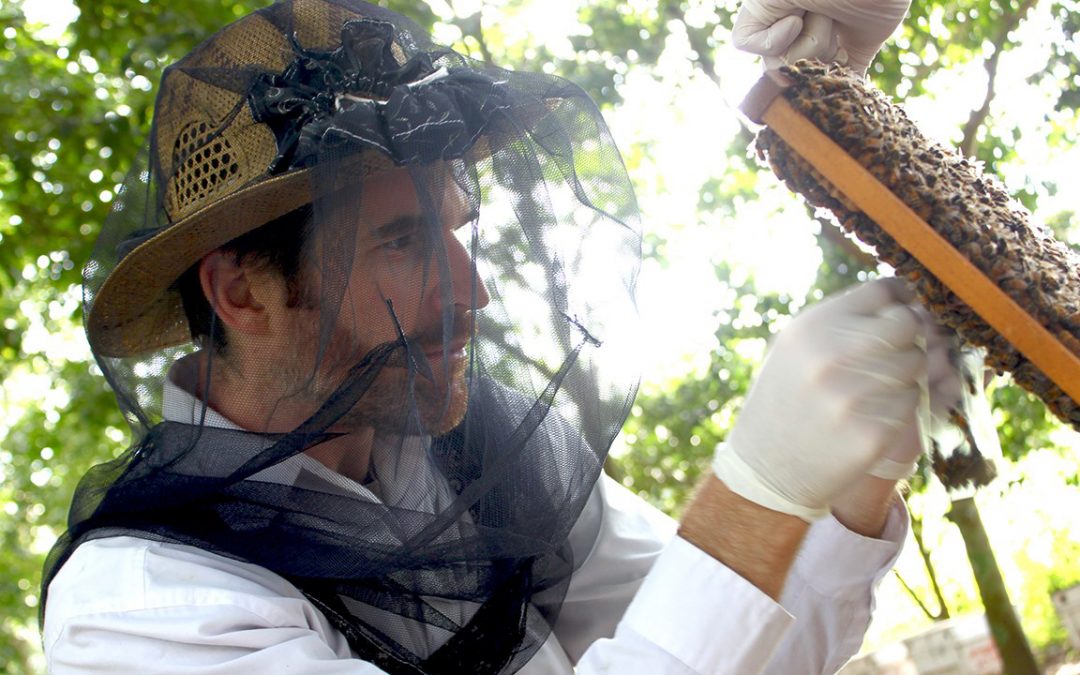
Beekeepers across the U.S. lost 40.7% of their managed honey bee colonies from April 1, 2018, to April 1, 2019, and experienced the highest rate of winter loss in 13 years, preliminary results of the annual nationwide colony loss survey show.
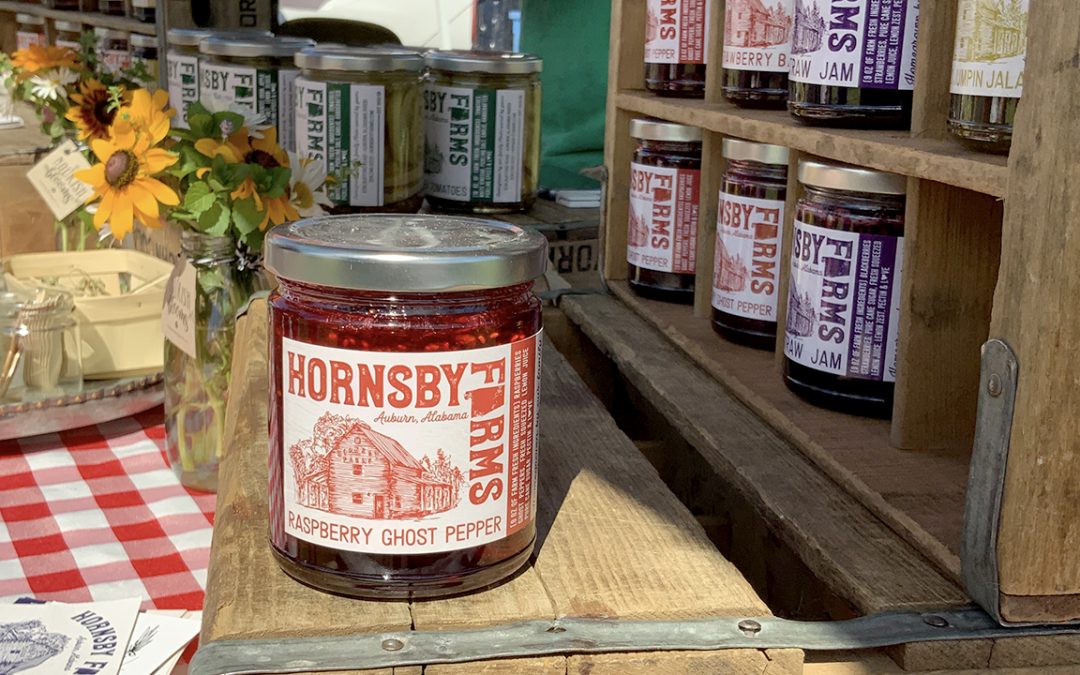
Would you be more willing to buy a bag of sweet potatoes, basket of peaches or a jar of honey if you knew from the label that it was grown in Alabama?
Henry Kinnucan and Brittney Goodrich, agricultural economists in Auburn University’s College of Agriculture, comment on the heavy rain and floods affecting U.S. corn farmers, especially in the Midwest, who face delayed planting. Consumers also face rising grocery and...
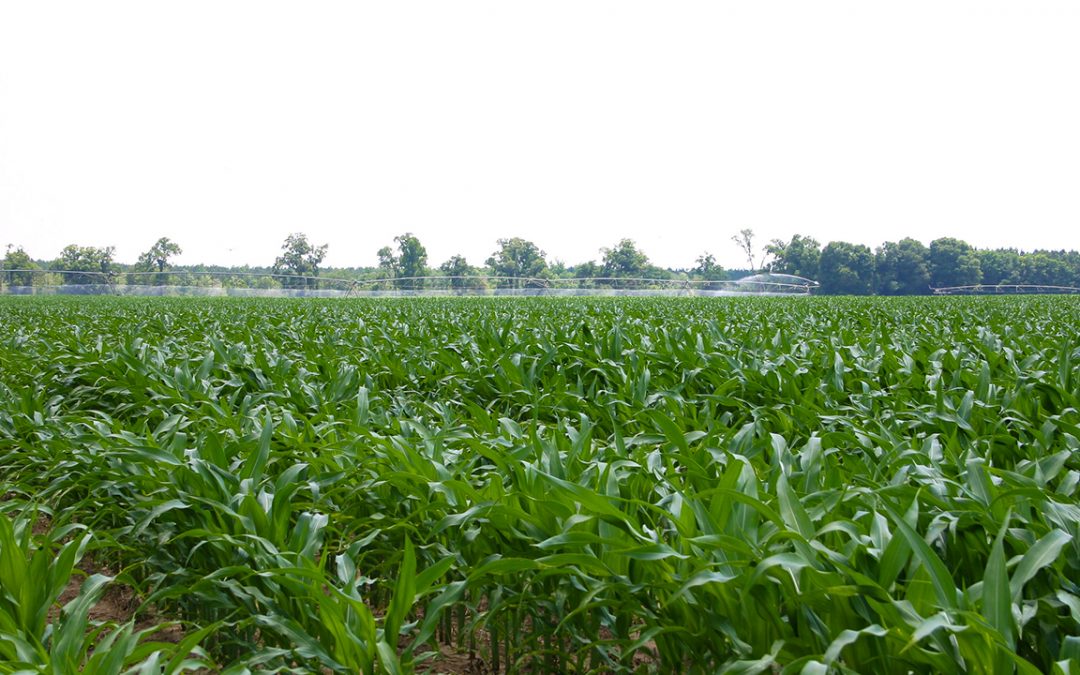
Henry Kinnucan and Brittney Goodrich, agricultural economists in Auburn University’s College of Agriculture, comment on the heavy rain and floods affecting U.S. corn farmers, especially in the Midwest, who face delayed planting. Consumers also face rising grocery and ethanol prices as a result of the delayed planting.
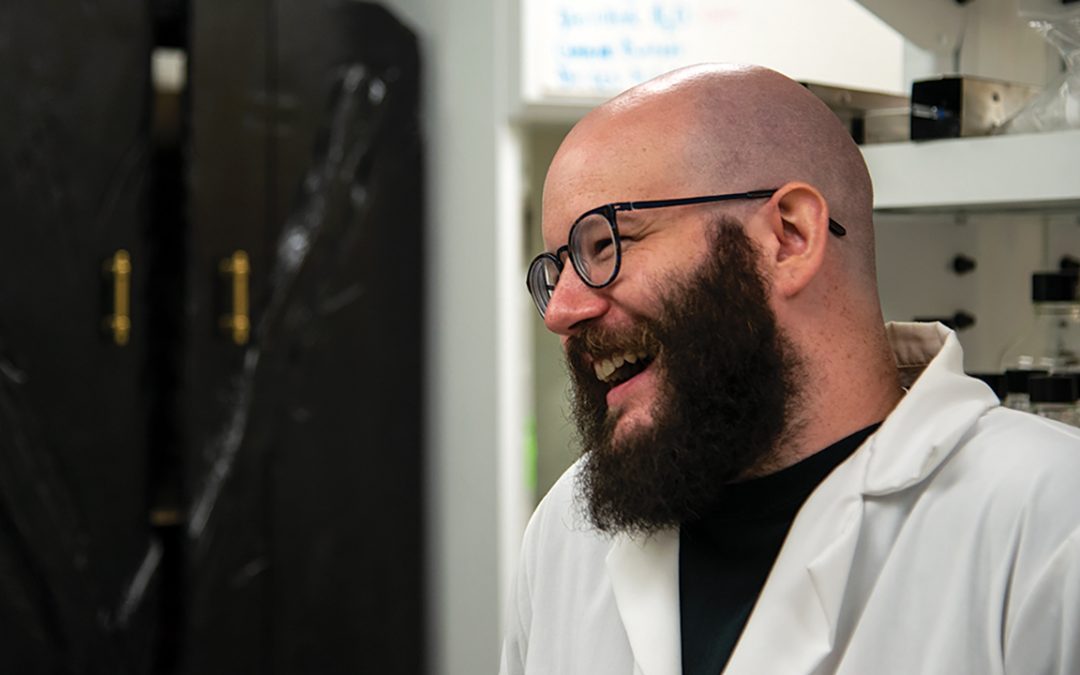
“The many speak highly of you, but have you really any grounds for satisfaction with yourself if you are the kind of person the many understand?”—Seneca, first-century Roman Stoic philosopher
A teaching space inside the flagship building at Auburn University’s Charles C. Miller Jr. Poultry Research and Education Center is now the Pilgrim’s Education Classroom. The university’s Board of Trustees approved the designation at its June 7 meeting in Auburn in...
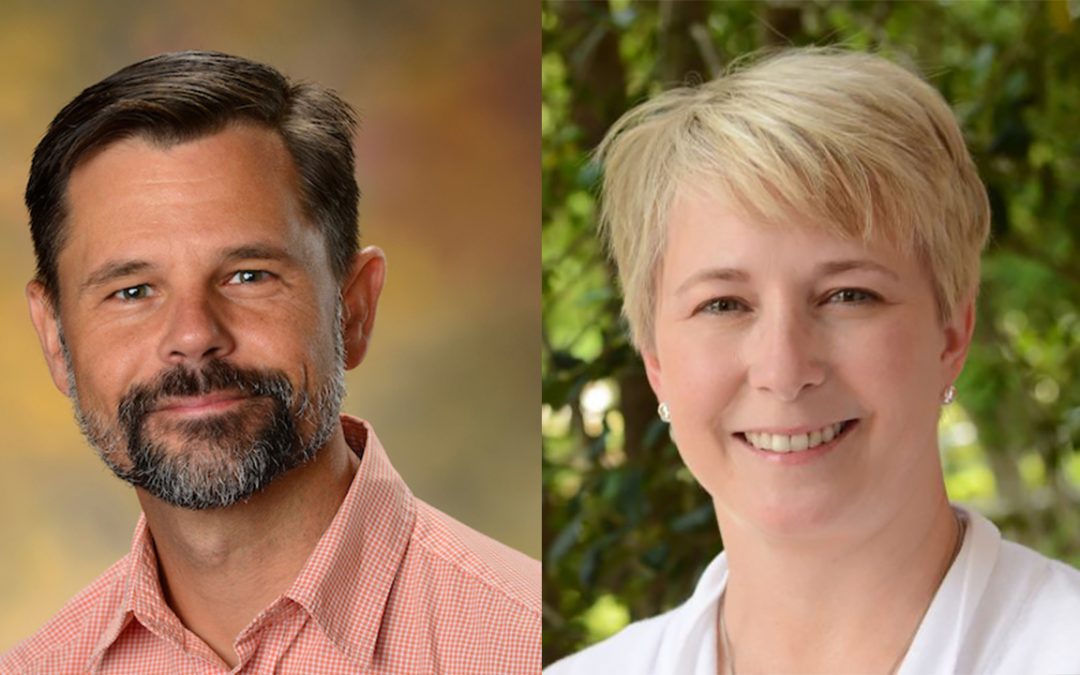
Matthew Waters, assistant professor in the Department of Crop, Soil and Environmental Sciences, and Liz Smith, academic advisor in the same department, are the respective winners of the Auburn University Parents’ Association 2018-19 Faculty and Staff Awards.
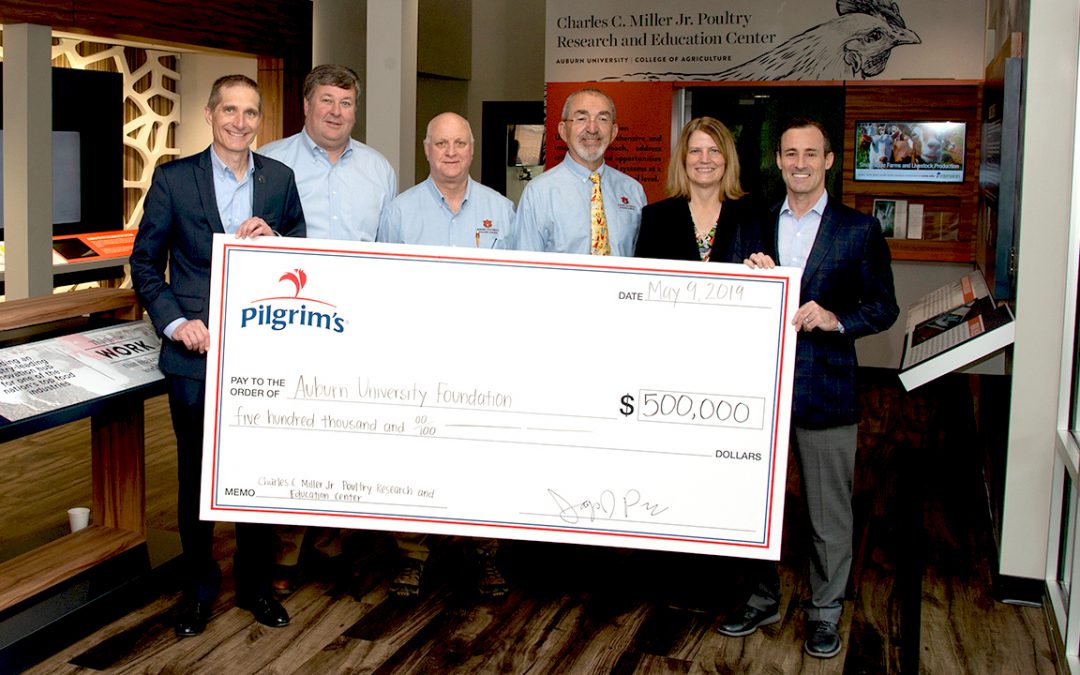
Pilgrim’s makes $500,000 gift to Auburn’s Miller Poultry Research and Education Center

Tyson Foods, Auburn University partner to build first stand-alone solar-powered poultry house

Chairperson, Division of Business and Accounting at Miles College in Birmingham, AL
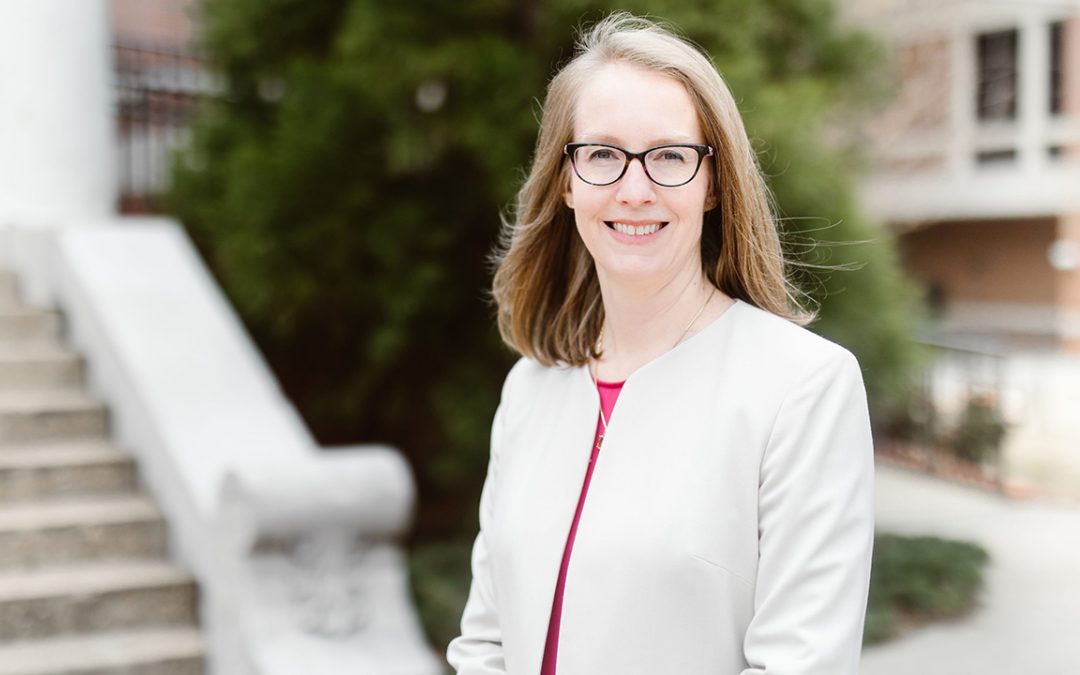
Carolyn Huntington, lecturer and undergraduate program officer in the Department of Animal Sciences, has won the 2019 Outstanding Advising Award in the faculty advisor category from the National Academic Advising Association, or NACADA.
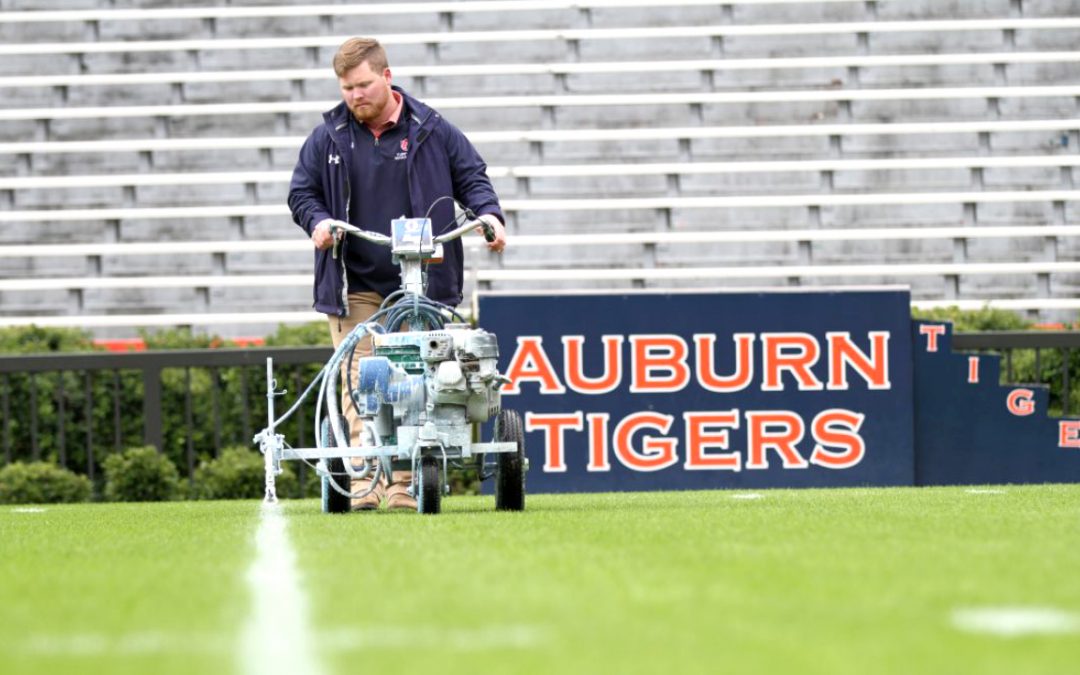
Auburn turf management major recounts super week at Super Bowl

Auburn extension specialists Kim Mullenix & Ayanava Majumdar were honored for their work at the Alabama Farmers Federation Aug. 1.

Marel Poultry donates a processing system to Auburn University’s Miller Center in Alabama, USA. Essential to poultry processing research.

Auburn poultry scientist Sarge Bilgili accepts 2019 Poultry Science Association Distinguished Poultry Industry Career Award

Horticultural experts at Auburn University are part of an innovative health study that uses gardening as a cancer intervention.

The tools for fighting cancer: how gardening has become a wellness practice

Biosystems engineering represented well at ASABE international meeting

Auburn University researchers are examining the use of beneficial bacteria as an alternative to nitrogen on bermuda grass hay.

Horticulture department hosts workshop for Alabama agriscience teachers at Auburn

Fernando Biase, assistant professor in the College of Agriculture’s Department of Animal Sciences, is leading a project that will create a basis of knowledge allowing for the development of strategies to improve fertility in beef cattle.

Beekeepers across the U.S. lost 40.7% of their managed honey bee colonies from April 1, 2018, to April 1, 2019, and experienced the highest rate of winter loss in 13 years, preliminary results of the annual nationwide colony loss survey show.

Would you be more willing to buy a bag of sweet potatoes, basket of peaches or a jar of honey if you knew from the label that it was grown in Alabama?
Henry Kinnucan and Brittney Goodrich, agricultural economists in Auburn University’s College of Agriculture, comment on the heavy rain and floods affecting U.S. corn farmers, especially in the Midwest, who face delayed planting. Consumers also face rising grocery and...

Henry Kinnucan and Brittney Goodrich, agricultural economists in Auburn University’s College of Agriculture, comment on the heavy rain and floods affecting U.S. corn farmers, especially in the Midwest, who face delayed planting. Consumers also face rising grocery and ethanol prices as a result of the delayed planting.

“The many speak highly of you, but have you really any grounds for satisfaction with yourself if you are the kind of person the many understand?”—Seneca, first-century Roman Stoic philosopher
A teaching space inside the flagship building at Auburn University’s Charles C. Miller Jr. Poultry Research and Education Center is now the Pilgrim’s Education Classroom. The university’s Board of Trustees approved the designation at its June 7 meeting in Auburn in...

Matthew Waters, assistant professor in the Department of Crop, Soil and Environmental Sciences, and Liz Smith, academic advisor in the same department, are the respective winners of the Auburn University Parents’ Association 2018-19 Faculty and Staff Awards.

Pilgrim’s makes $500,000 gift to Auburn’s Miller Poultry Research and Education Center

Tyson Foods, Auburn University partner to build first stand-alone solar-powered poultry house

Chairperson, Division of Business and Accounting at Miles College in Birmingham, AL

Carolyn Huntington, lecturer and undergraduate program officer in the Department of Animal Sciences, has won the 2019 Outstanding Advising Award in the faculty advisor category from the National Academic Advising Association, or NACADA.

Auburn turf management major recounts super week at Super Bowl